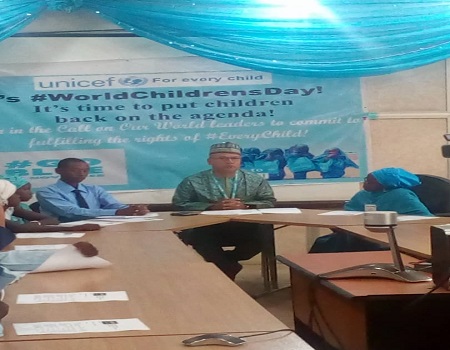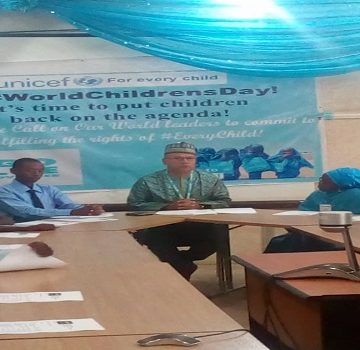This discovery was made by the United Nations Children Fund (UNICEF) as disclosed by the UNICEF Nigeria Chief of Bauchi Field Office, Mr Bhanu Pathak on Wednesday as part of the activities to mark the celebration of the 2018 World Children Day with the slogan ‘It’s time to put Children back on the Agenda’ held at the UNICEF Field office in Bauchi.
Bhanu Pathak also said that child marriage was a key driver of challenges throughout Northern Nigeria, leading to school drop-outs and adolescent pregnancy, which is linked to high maternal mortality and malnutrition, among other issues.
“At least 44.1 per cent of girls in Nigeria are married before their 18th birthday, while 18.5 per cent are married before they turned 15. We have a long way to go to make sure that Nigerian children’s rights are all respected, and for all Nigerian children to live safe, happy and healthy lives. There has been much improvement over the years, but much remains to be done,” he said.
He added that: “We need to invest in education to ensure that we get the more than 10 million children still not attending school into classrooms. We need to make sure that Children, including especially hard to reach, can access the nutrition they need to survive and thrive, instead of a situation where 50 per cent of child deaths which are due to malnutrition.”
ALSO READ: Next Level Campaign: Buhari to grant internet access to Nigerians
The UNICEF Chief then urged state governments to hasten the implementation of the Child Right Act, saying that it is an investment into the nation’s future.
He said that UNICEF over the next four years plans to increase enrollment of children, especially girls, strengthen gender equality in education, improve the quality of learning in schools, increase routine immunisation, support women to make empowered decisions, including pregnancy and promote child survival and well-being.
Highlights of the celebration were the hosting of 15 students from different public secondary schools in the state who assumed symbolic roles within the UNICEF Field office. The essence was to prepare their minds towards taking leadership positions in the area of education, health, sanitation and hygiene among others.







